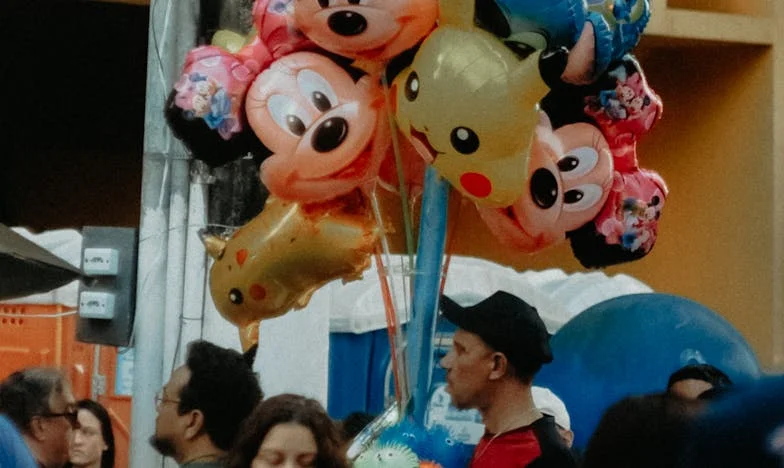The Promise That Broke My Heart: A Brother’s Burden
“You have to promise me, Michael. You’ll take care of Emily, no matter what. This house—it’s yours, but only if you make sure she’s safe.”
Even now, years later, my mother’s desperate voice still echoes in my mind, slicing through the quiet like a knife. I was kneeling by her hospital bed that night, my hand clutching hers so tightly I thought I’d never let go. The sterile smell, the beeping monitors, and Emily’s soft whimpering in the corner—it all felt like a fever dream. But the words were real. So was the promise. And so was the burden.
I nodded, tears streaming down my face, and whispered, “I promise, Mom. I swear.”
If only I’d known what that promise would cost me.
My mother died the next morning. The funeral was a blur—a parade of casseroles, awkward hugs, and people telling me I was “so brave” for stepping up. My older brother, Tyler, barely showed his face. He said he was busy with work out in Seattle. My aunt Carol fussed over Emily, but her eyes kept darting toward the house, the one that was now mine. At least, on paper.
Emily was twenty-three, but her mind was still that of a child. She needed help with everything—cooking, dressing, even remembering to brush her teeth. She’d always been my shadow, but now, she was my responsibility. The first week after the funeral, she barely left her room. I tried to coax her out with pancakes, her favorite, but she just stared at the wall, rocking back and forth.
“Do you want to go for a walk, Emmy?” I asked one afternoon, kneeling beside her bed.
She shook her head, clutching her stuffed rabbit to her chest. “Mommy?”
My heart broke all over again. “Mommy’s gone, honey. But I’m here. I won’t leave you.”
I meant it. At least, I thought I did.
The days blurred into each other. I quit my job at the auto shop so I could be home for Emily. The bills piled up. Tyler called once, just to say there was no way he could move back to help, not with his startup taking off. Aunt Carol started hinting that maybe it was time to “look into a facility” for Emily, that it would be “best for both of us.” But I couldn’t. I’d made a promise, and besides, the house was the last piece of my mother I had left.
As the months passed, the weight of caregiving pressed down on me. Emily’s tantrums grew worse. Some days, she screamed for hours, throwing things, hitting herself. I tried everything—therapists, medication, routines. But the isolation was suffocating. Friends stopped calling. I couldn’t remember the last time I’d laughed. I started sleeping on the couch, too exhausted to make it to my own bed.
Then, late one night, Tyler showed up unannounced. He looked around the living room, taking in the mess—the piles of laundry, the dirty dishes, the worn-out carpet.
“Jesus, Mike. You’re letting this place go to hell.”
I bristled. “What do you expect, Ty? I’m doing this alone.”
He didn’t look at me. “Maybe Aunt Carol’s right. Maybe Emily would be better off somewhere with professionals. You could have your life back.”
My voice shook. “That’s not what Mom wanted. That’s not what I promised.”
Tyler shrugged. “Mom’s gone. You don’t have to ruin your life over this.”
I hated him in that moment. Hated his selfishness, his coldness. But deep down, a part of me wondered if he was right. I started snapping at Emily, losing my patience over little things. Guilt gnawed at me, but I couldn’t stop.
The breaking point came one freezing January night. Emily woke up screaming, convinced there were monsters in her closet. I stumbled into her room, exhausted and angry. “There’s nothing there, Emily! Go back to sleep!”
She wouldn’t stop crying. In my frustration, I grabbed her shoulders, maybe too hard. She looked at me with wide, terrified eyes—and for the first time, I saw fear. Not the childish fear of monsters, but fear of me. I let her go, stumbling backward, my hands shaking. I spent the night on the floor outside her room, sobbing.
The next morning, Aunt Carol called to say she was coming over. When she arrived, she took one look at me and said, “Michael, you can’t do this anymore. You’re falling apart.”
I didn’t argue. I just nodded, numb.
By spring, Emily was in a group home across town. The day I dropped her off, she clung to me, screaming. I had to pry her fingers from my coat. The staff told me to give her time to adjust, that she’d be okay. I drove home in silence, the house echoing with emptiness.
Tyler called to congratulate me, said now I could “finally live.” But I didn’t feel free. I felt like I’d lost everything—my sister, my mother’s trust, even the version of myself who used to believe in promises.
Now, years later, I sit alone in this creaking old house. The walls are lined with family photos, but the faces feel like strangers. I see Emily every week, but she barely looks at me. I wonder if she forgives me, if she ever will.
Sometimes, when I walk through the empty rooms, I hear my mother’s voice: “You have to promise me…” I kept that promise as long as I could. But was it enough? Was the house worth the price I paid?
Do we really owe our lives to promises made in grief? Or is love sometimes knowing when to let go? What would you have done?
